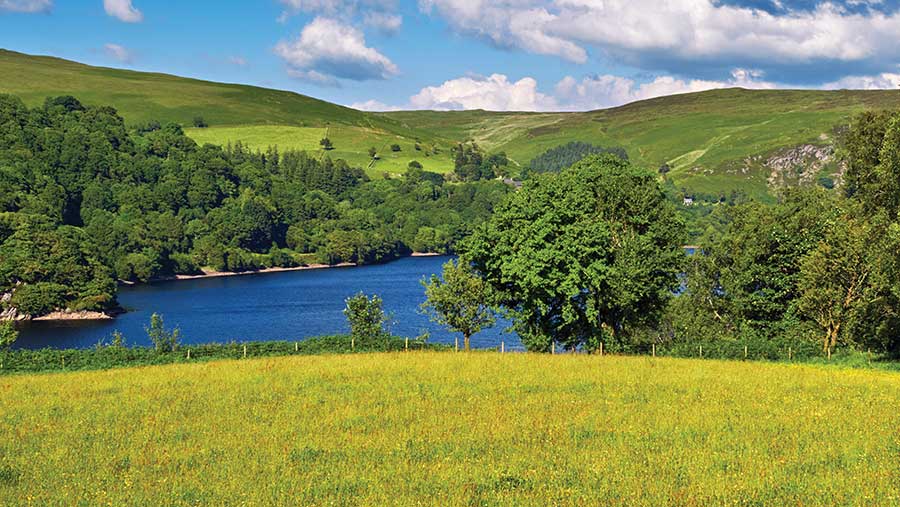Welsh farmers managing precious habitats excluded from support
 © Cephas Picture Library/Alamy Stock Photo
© Cephas Picture Library/Alamy Stock Photo Welsh farmers managing the country’s most precious habitats face being excluded from support, in a situation that has been described as “untenable” by NFU Cymru.
The move comes as ministers look to extend the area of Welsh land under designation in a bid to meet their “30 by 30” target, to protect at least 30% of land, freshwater and sea by 2030.
One Meirionnydd farmer, Alun Wyn Evans, who has won awards for his work to boost lapwing numbers, told Farmers Weekly he had contemplated giving up farming altogether because of the Welsh government’s proposals.
See also: Welsh farmers protest outside Lesley Griffiths’ office
Under the current plans, sites of special scientific interest (SSSIs) are ineligible for the habitat maintenance element of the universal baseline payment in the Sustainable Farming Scheme (SFS), which is due to be introduced in 2025.
Support for these sites is supposed to be prioritised for inclusion in the SFS’s optional action layer, but this will be subject to the development of a management plan with Natural Resources Wales (NRW).
The optional action layer is also set to be introduced later and is dependent on budget availability.
Natural Resources Wales funding constraints
According to a letter sent from NRW to SSSI holders, seen by Farmers Weekly, NRW is already struggling to finalise current land management agreements due to funding constraints.
NFU Cymru rural affairs board chairman Hedd Pugh said: “Given that there are currently some 1,070 SSSIs in Wales, many of which are located on farms, it is incomprehensible that these sites are to be excluded from the universal layer of the SFS, particularly when we know that it is going to take time to get the management plans with NRW in place and a lot more work is going to be needed to get the optional action layer of the scheme operational.
“Some farms support extensive SSSI designations and Welsh government’s proposals will feel especially punitive to these farmers.
“These sites are supposed to be the best examples of our natural environment, reflecting positive management practices by farmers over generations.”
Mr Evans said there would be a “big negative impact” on the environment at his farm Penllyn, at Tywyn, of which 96% is designated SSSI.
He has already lost 60% of his payment income after joining the Habitat Wales Scheme, which was designed to bridge the gap between Glastir and the introduction of the SFS. The scheme has come under heavy criticism for its low payment rates.
Basic Payment Scheme support is also set to begin dropping by 20% a year from 2025.
“How much money am I going to put into this farm knowing we’re not going to get the pay back from it,” said Mr Evans.
“It will mean me probably working out [off farm] more to keep things going. We’re doing 24/7 already. It’s not sustainable in the long term.
“The SFS needs to be thrown out and looked at properly by somebody who has some agricultural knowledge.”
Government response
A Welsh government spokesperson said: “We continue to work with Natural Resources Wales to develop the proposals in the consultation, which is still open, and we encourage everyone to reply with their views by 7 March.
“No final decision will be taken on the scheme until after the consultation has taken place, and we will listen carefully to all views.”
